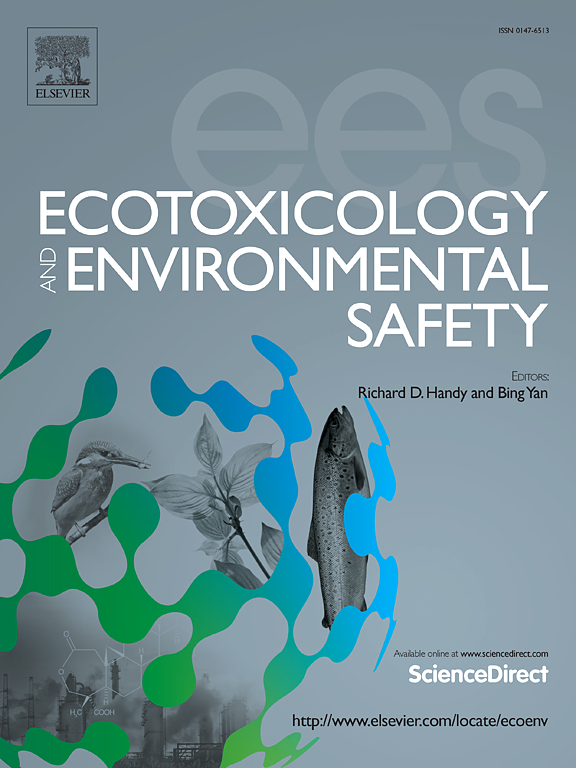Bone marrow mesenchymal stem cells senescence induced by LCCP through activation of cGAS-STING-mediated inflammation
IF 6.2
2区 环境科学与生态学
Q1 ENVIRONMENTAL SCIENCES
引用次数: 0
Abstract
The pollution issue of chlorinated paraffins has garnered widespread attention, with short-chain chlorinated paraffins (SCCPs) being comprehensively banned by the Stockholm Convention due to environmental contamination concerns. Currently, long-chain chlorinated paraffins (LCCPs) are widely used, necessitating an assessment of their toxicological impact. Bone marrow mesenchymal stem cells (MSCs) are a type of multipotent stem cell with self-renewal, immunoregulatory, and tissue repair capabilities, exhibiting important biological functions. In this study, MSCs were used as a model to evaluate the toxicological effects of LCCP. Initially, cell proliferation experiments were conducted to assess the impact of LCCP on MSC proliferation. The results indicated a significant reduction in cell proliferation capacity. Further work revealed that LCCP treatment induced cell senescence, as evidenced by Sa-β-gal staining and the evaluation of senescence markers, including p16, p21, and p53. Furthermore, LCCP treatment led to inflammation and oxidative stress, as analyzed by corresponding marker molecules, and ultimately resulted in cell death. Based on these findings, we investigated the molecular mechanisms underlying LCCP-induced MSC senescence. In summary, this paper is the first study to systematically investigate the toxicological effects of LCCPs on stem cells. The current study demonstrates that LCCP induces MSC senescence, highlighting its potential toxicity. This research lays the foundation for further elucidating the toxicology of LCCP. This finding suggests that the use of LCCPs should be strictly controlled under rigorous regulation.
求助全文
约1分钟内获得全文
求助全文
来源期刊
CiteScore
12.10
自引率
5.90%
发文量
1234
审稿时长
88 days
期刊介绍:
Ecotoxicology and Environmental Safety is a multi-disciplinary journal that focuses on understanding the exposure and effects of environmental contamination on organisms including human health. The scope of the journal covers three main themes. The topics within these themes, indicated below, include (but are not limited to) the following: Ecotoxicology、Environmental Chemistry、Environmental Safety etc.

 求助内容:
求助内容: 应助结果提醒方式:
应助结果提醒方式:


